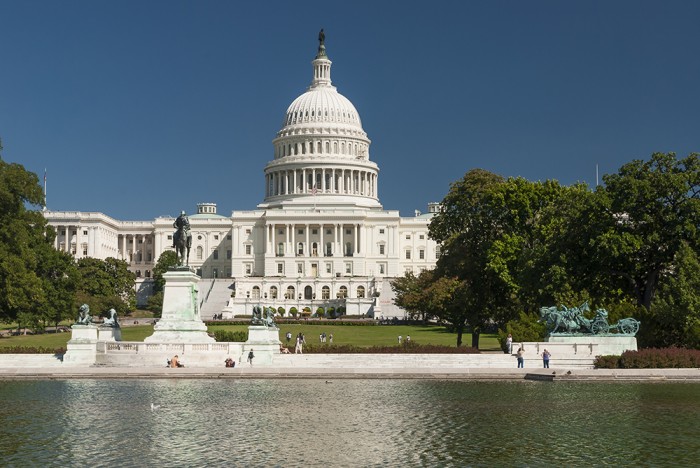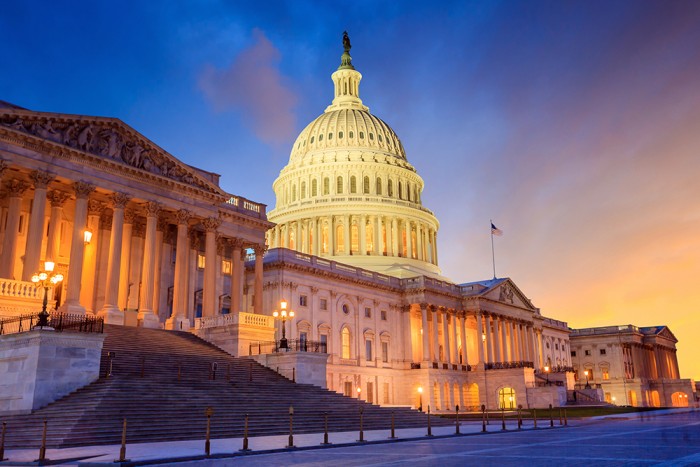Contact Your State Legislator Regarding CCBHC Funding
Prior to the July 4 holiday, the House and Senate passed legislation to extend Certified Community Behavioral Health Clinics (CCBHC) funding from June 30 through July 14. The bill, sent to President Trump for his signature, can be seen here.
RCPA is requesting members to contact their state legislators and ask them to reach out to Governor Wolf and the Department of Human Services (DHS) Secretary Teresa Miller, to have them accept the federal extension of CCBHC funding.
The areas in Pennsylvania that have CCBHC facilities are as follows:
- Philadelphia;
- Delaware and Montgomery counties;
- Berks County;
- Allegheny County;
- Clearfield, Clarion, and Centre counties; and
- Bradford County.
Please contact RCPA Director of Government Affairs Jack Phillips with any questions.
Congressional Briefing Highlights Needs of Transition Age Youth with I/DD and BH Conditions
On May 15, Representatives Grace Napolitano (D-CA) and John Katko (R-NY), co-chairs of the Congressional Mental Health Caucus, hosted a very important briefing in Washington, DC as part of Mental Health Awareness Month. This briefing addressed the decarceration of transition age youth with intellectual/developmental disabilities (I/DD) and mental disorders. Key presentations outlined the issue, its impact (including impact upon families), and needed solutions.
Rep. Napolitano opened with welcoming remarks, whereby she decried the plight of many children and young adults with disabilities and emphasized the need to move toward community care. Additional information about the briefing can be found here.
Medicaid Bill Passed to Allow for Short-Term Extension of Programs
(Source: Buchanan, Ingersoll and Rooney, PC, Daily Health Care Daily Roundup, April 3, 2019)
Following House passage last week, the Senate passed, by voice vote, the Medicaid Services Investment and Accountability Act of 2019 (H.R. 1839), legislation that includes short-term extensions of several Medicaid programs such as the Money Follows the Person Program – which helps transition individuals with chronic conditions and disabilities from institutions back into their local communities to get care – and the Community Mental Health Services Demonstration Program, which allows community providers to expand access to treatment for mental and behavioral health. Specifically, the bill provides $20 million in additional grant funds for the Money Follows the Person Program and extend the Community Mental Health Services Demonstration Program through June 30, 2019, or for two years, whichever is longer. In addition, the bill:
- Includes provisions of the Right Rebate Act, which allows the Secretary of Health and Human Services to require drug manufacturers to reclassify their drugs and impose civil monetary penalties when drugs are knowingly misclassified in the Medicaid Drug Rebate Program (MDRP);
- Increases the number of days (from 90 to 100) that a state may delay payments in Medicaid to providers for medical services provided to a child with a medical support order; and
- Extends states’ flexibility to disregard individuals’ spousal income and assets when determining eligibility for home and community-based services and supports through September 30, 2019.
Finally, the bill includes provisions of the Advancing Care for Exceptional (ACE) Kids Act that creates a state option to establish health homes for children with medically complex conditions, as well as provide two quarters of enhanced federal matching funds for states’ payments to health homes. The bill now heads to the President for his signature.
Questions, please contact Jack Phillips, Director of Government Affairs.
Federal Judge Blocks Medicaid Work Requirements in Kentucky and Arkansas
By Amy Goldstein, MSN News
A federal judge in Washington threw a significant roadblock into the Trump administration’s efforts to require poor people on Medicaid to be compelled to work in exchange for health benefits, rejecting a Kentucky program for a second time while saying that rules in effect in Arkansas “cannot stand.”
The twinned opinions, in a pair of states that have been national leaders in the move towards Medicaid work requirements, cast doubt on the Trump administration’s approvals of efforts to re-envision the public insurance program. The opinions undo the permission the U.S. Health and Human Services Department had given those two states, telling the agency it must reconsider their applications with an eye towards the effect on poor people who depend on the coverage… Read full article here.
President Trump Releases FY 2020 Budget Message and Priorities
This alert contains information from both the National Council for Behavioral Health and the American Medical Rehabilitation Providers Association (AMRPA).
On Monday, President Trump unveiled his Fiscal Year (FY) 2020 budget request — calling for a $4.7 trillion decrease in federal spending and detailing his Administration’s priorities for next year. The document revives efforts to block grant Medicaid and restrict eligibility, maintains spending to combat opioid addiction, and outlines other major health care priorities. As with most presidential budgets, this proposal stands little chance of being enacted into law as written. Instead, the President’s budget proposal will act more as a messaging tool to Congress, which is currently working to develop and pass a budget for FY 2020 over the next few months.
It is important to note that it is the role of Congress, not the President, to design and pass the federal budget. As with the President’s previous two budgets, this year’s ambitious spending cuts are unlikely to gain traction in Congress. Regardless, they present a starting point for the budget and appropriations processes and outline President Trump’s priorities as he navigates a divided Congress. It remains to be seen if any of the President’s recommendations (detailed below) will be taken up by Congressional appropriators as they move through the budget process.
Among the highlights of the President’s budget request for the Health and Human Services Department (HHS) for FY 2020:
Medicaid – Particularly notable among Medicaid proposals in the President’s budget are a requirement for all states to institute work requirements as a condition of enrollment and to eliminate the Medicaid expansion contained in the ACA. Earlier Kaiser Family Foundation estimates have found that a nationwide rollout of Medicaid work requirements could cost between 1.4 and 4 million individuals their health care coverage. Furthermore, the budget calls for Medicaid spending to be redirected into block grants or for per-capita caps to be imposed.
Although Congressional Republicans and the Administration have previously proposed to convert the Medicaid program to block grants through Graham-Cassidy and similar legislation, the Administration has recently given indications that it could attempt to implement block grants for some states through 1115 waiver authority. The budget also calls once again for passing legislation similar to the Graham-Cassidy bill, however, the chances for legislation that would make major changes to Medicaid and/or the Affordable Care Act passing the Democratic-controlled House are nonexistent.
Opioid Crisis — The budget would keep funding for a response to the opioid epidemic relatively flat. The Administration calls for the continuation of the $1.5 billion in State Opioid Response (SOR) grants, the same amount as FY 2019. The budget also asks for $1 billion for the NIH’s opioid and pain research programs, to set minimum standards for drug utilization review (DUR) programs, and $221 million to support and grow the behavioral health workforce. Of the funding to support the behavioral health workforce, $4 million would be set aside to train providers to prescribe medication-assisted treatment (MAT) for opioid use disorders. Additionally, the Administration proposes to continue funding Substance Abuse Prevention and Treatment block grants at $1.85 billion.
ONDCP – Trump’s fiscal 2020 budget blueprint for the third year in a row proposes slashing the White House’s Office of National Drug Control Policy’s (ONDCP) budget by more than 95 percent by moving the office’s two major grant programs into other federal agencies. The $100 million Drug Free Communities program would be folded into the Substance Abuse and Mental Health Services Administration (SAMHSA) while the $254 million High Intensity Drug Trafficking Areas grant would be transferred to the Department of Justice.
Mental Health — The President’s budget calls for $723 million (a $13 million increase) for the Community Mental Health Services Block Grant and $150 million for Children’s Mental Health Services, all level funding from FY 2019. Importantly, the President once again endorsed Certified Community Behavioral Health Clinics (CCBHC) model to care for people with serious mental illness and addiction, calling for level funding for CCBHC expansion grants at $125 million. In response to the Parkland school shooting, the budget also includes $133 million for school violence prevention efforts, which include school safety programs as well as trainings within schools for school personnel to better recognize the signs and symptoms of mental illness in students, such as Mental Health First Aid.
In total, SAMHSA sees its budget reduced by $62 million to $5.5 billion total. Some of that savings comes from regional substance abuse prevention and treatment programs and programs that provide advocacy for individuals with mental illnesses. Notably, the proposal eliminates the Primary and Behavioral Health Care Integration grants, a program that supports providers in implementing integrated care. The National Council will advocate for continued funding of this important program that improves care for individuals with co-occurring behavioral and physical health conditions.
NIH Funding — The budget rolls out the President’s initiative to end the HIV epidemic, a hallmark of his 2019 State of the Union address. HHS would receive $291 million for the initiative, including $140 million to the CDC for diagnosis and testing. The NIH would see an overall budget cut of approximately $5.5 billion.
Post-acute care providers – Unified PAC Payment System. The Budget proposes to “address excessive payment for post-acute care providers by establishing a unified payment system based on patients’ clinical needs rather than the site of care.” The Budget table shows savings from the reform beginning in FY 2020. The HHS Budget-in-Brief explains that the proposal will provide lower annual Medicare payment updates to SNFs, HHAs, and IRFs beginning in FY 2020 through FY 2024. In FY 2025, HHS would implement a unified post-acute care payment system for SNFs, HHAs, IRFs, and LTCHs. The payment rates would be budget neutral in FY 2025, risk adjusted, and established prospectively annually. According to HHS, the episode grouping and pricing would be based on the average cost for providing post-acute care services for a diagnosis, similar to the DRG methodology for inpatient hospitals. The proposal provides the Secretary with authority to adjust payments based on quality of care, geographic differences in labor and other costs, as well as other factors as determined appropriate.
Additional details on the President’s HHS budget request are outlined in the Department’s budget-in-brief document.
Questions, contact RCPA Director of Government Affairs Jack Phillips.
Wolf Administration’s Press Release on President’s Proposed Budget
(From DHS news room)
Wolf Administration: Trump-Proposed Cuts to Federal Health Programs Jeopardize Access to Life-Saving Health Care
Harrisburg, PA – The Wolf Administration today spoke out against potential cuts contained in President Trump’s proposed federal budget, which would significantly change Medicare, Medicaid, and the Affordable Care Act. In total, these programs help more than 5.5 million older, working, and low-income Pennsylvanians access routine and life-saving health care.
Under President Trump’s proposed budget, Medicaid expansion, which currently covers nearly 700,000 Pennsylvanians, would be eliminated. Medicaid would also be converted from an entitlement program that provides coverage to all who are eligible to block grant allocated to states based on a per-person funding cap.
“Medicaid allows more than 2.8 million Pennsylvanians to access health care coverage that would otherwise be unaffordable or inaccessible. Changing the program to a block grant system and eliminating the Medicaid expansion would result in significant losses of coverage and more people being unable to access the care they need to stay healthy,” said Human Services Secretary Teresa Miller.
The federal budget also proposes a nationwide work requirement for able-bodied, working-age Medicaid recipients, requiring them to find work, train for work, or volunteer in order to maintain coverage. This requirement would be similar to what is in place for Temporary Assistance for Needy Families (TANF) recipients, a program the Wolf Administration is currently redesigning to address barriers to employment and encourage better long-term employment outcomes for TANF recipients.
“A work requirement doesn’t get a person a job — let alone a family sustaining job. It jeopardizes their access to health care and other essential needs, and without the investment needed to assist them to address the factors that can hold them back, they continue to be stuck in a cycle of poverty and poor health,” said Secretary Miller. “Governor Wolf is redesigning Pennsylvania’s employment and training programs to better address the barriers that prevent people from obtaining family-sustaining jobs. The federal government should follow this work rather than creating another barrier to good health.”
The President’s proposed budget also encourages implementing the ACA replacement proposed by Senators Bill Cassidy and Lindsey Graham, which would end protections against inflated pricing for older consumers, tax credits for plans purchased through the health insurance exchange, and essential health benefits, among others. The plan was previously called a step backwards by the Wolf Administration in 2017.
“Pennsylvania’s uninsured rate is at an all-time low of just 5.5 percent, down from more than double digits before the Affordable Care Act took effect. Governor Wolf and I continue to strive to ensure all Pennsylvanians have access to coverage that is both affordable and comprehensive. Unfortunately, this budget would move in the opposite direction,” Insurance Commissioner Jessica Altman said. “We need to build upon the progress we have made, and not look to policies like those contained in President Trump’s budget proposal that could jeopardize the coverage gains we have made and the health care programs millions of Pennsylvanians rely on.”
Commissioner Altman noted for 2019, the aggregate statewide premium for individual ACA plans fell by 2.3 percent, a new insurer entered the state, and consumers in 30 counties had more options than in 2018, all indicating Pennsylvania’s individual health insurance market is moving toward stabilization.
“Under the Older Americans Act, the Department of Aging is responsible for serving as a visible and effective advocate on behalf of older Pennsylvanians,” said Acting Secretary of Aging Robert Torres. “President Trump’s proposed budget is the antithesis of what our seniors need and deserve.”
The budget proposes a 20% decrease in funding to the National Family Caregiver Support Program, a 26% percent decrease in funding to the State Health Insurance Assistance Program, and the elimination of funding for the Senior Community Services Employment Program and Elder Falls Prevention.
The administration called on President Trump and Congress to work together on federal health plans that break down barriers to work without jeopardizing vulnerable Pennsylvanians’ access to health care.
“Although this proposal is unlikely to pass Congress in this form, the spirit of this proposed budget still presents a cruel agenda that would jeopardize access to quality health care, making it more difficult for millions of Pennsylvanians,” said Secretary Miller. “Medicaid, Medicare, and the Affordable Care Act are lifelines, and the federal government must recognize the important role they play in many lives and strengthen these programs so they may continue to help people live healthy, productive lives for years to come.”
MEDIA CONTACT: Ali Fogarty – 717.425.7606
Ron Ruman, PID – 717.787.3289
Drew Wilburne, Aging – 717.705.3702
# # #
RCPA will be monitoring the federal budget in conjunction with our national associations and will inform members about any important updates. Further questions may be directed to Jack Phillips.
Federal DOL Rolls Out Proposed Overtime Rule
Recently, the Federal Department of Labor (DOL) announced its new proposed overtime rule. The DOL is proposing to raise the overtime threshold from the current level of $23,600 ($455/week) up to $35,308 ($679/week).
In 2016, President Obama’s overtime proposal would have taken the threshold to $47,476 ($913/week), and Governor Wolf’s 2018 proposal would take it to $47,892 ($921/week). Unlike previous proposals, the rule is not expected to include an automatic escalator.
More information about the proposed rule is available online. The DOL encourages any interested members of the public to submit comments about the proposed rule electronically at this website, in the rulemaking docket RIN 1235-AA20. Once the rule is published in the Federal Register, the public will have 60 days to submit comments for those comments to be considered.
Questions, please contact Jack Phillips, Director of Government Affairs.
Transformation to Competitive Employment Act Introduced
Congressman Bobby Scott (D-VA-3), chairman of the House Education and Labor Committee, Senator Bob Casey (D-PA), and Rep. Cathy McMorris Rodgers (R-WA-5) introduced the Transformation to Competitive Employment Act of 2019 (HR 873 / S 260). This Act provides states, service providers, subminimum wage certificate holders, and other agencies with the resources to help workers with disabilities transition into competitive, integrated employment. The Transformation to Competitive Employment Act is legislation designed to strengthen and enhance the disability employment service delivery systems throughout states while subminimum wages, which are currently allowed under Section 14(c) of the Fair Labor Standards Act, are phased out over a six-year period. Currently, under Section 14(c), employers that obtain a certificate are permitted to hire individuals with disabilities at less than minimum wage. The Act would include some grant money to assist states and certificate holders in transforming their organizations.
Chairman Scott’s press release lists the organizations supporting the bill: “American Network of Community Options and Resources (ANCOR), Association of People Supporting Employment First (APSE), Association of University Centers on Disabilities (AUCD), Autism National Committee, Autistic Self Advocacy Network (ASAN), Autism Society of America, Center for Public Representation (CPR), Collaboration to Promote Self-Determination (CPSD), Council of State Administrators of Vocational Rehabilitation (CSAVR), Disability Rights California, Disability Rights Education & Defense Fund (DREDF), Disability Rights Florida, Disability Rights Iowa, Disability Rights New Mexico, Michigan Protection and Advocacy Service, Inc., National Association of Councils on Developmental Disabilities (NACDD), National Association of State Directors of Developmental Disabilities Services (NASDDDS), National Council on Independent Living (NCIL), National Disability Institute (NDI), National Disability Rights Network (NDRN), National Down Syndrome Congress (NDSC), National Federation of the Blind (NFB), National Rehabilitation Association, TASH, Inc.”
ACCSES, on the other hand, strongly supports a full array of employment options for people with disabilities, including Section 14(c), and will continue to advocate for providers and people who chose this option. Contact Carol Ferenz, RCPA IDD Division Director, with any questions.


















